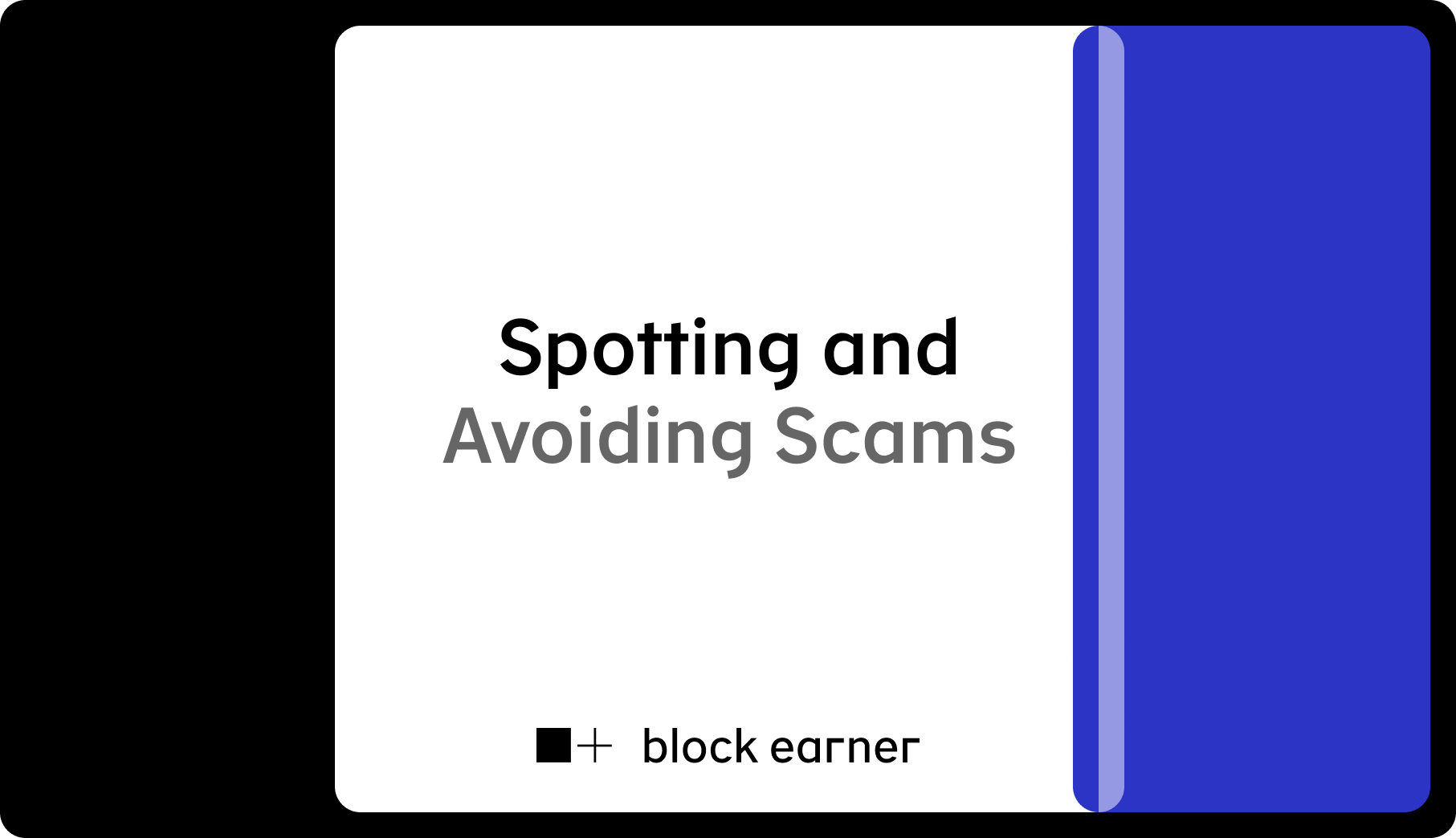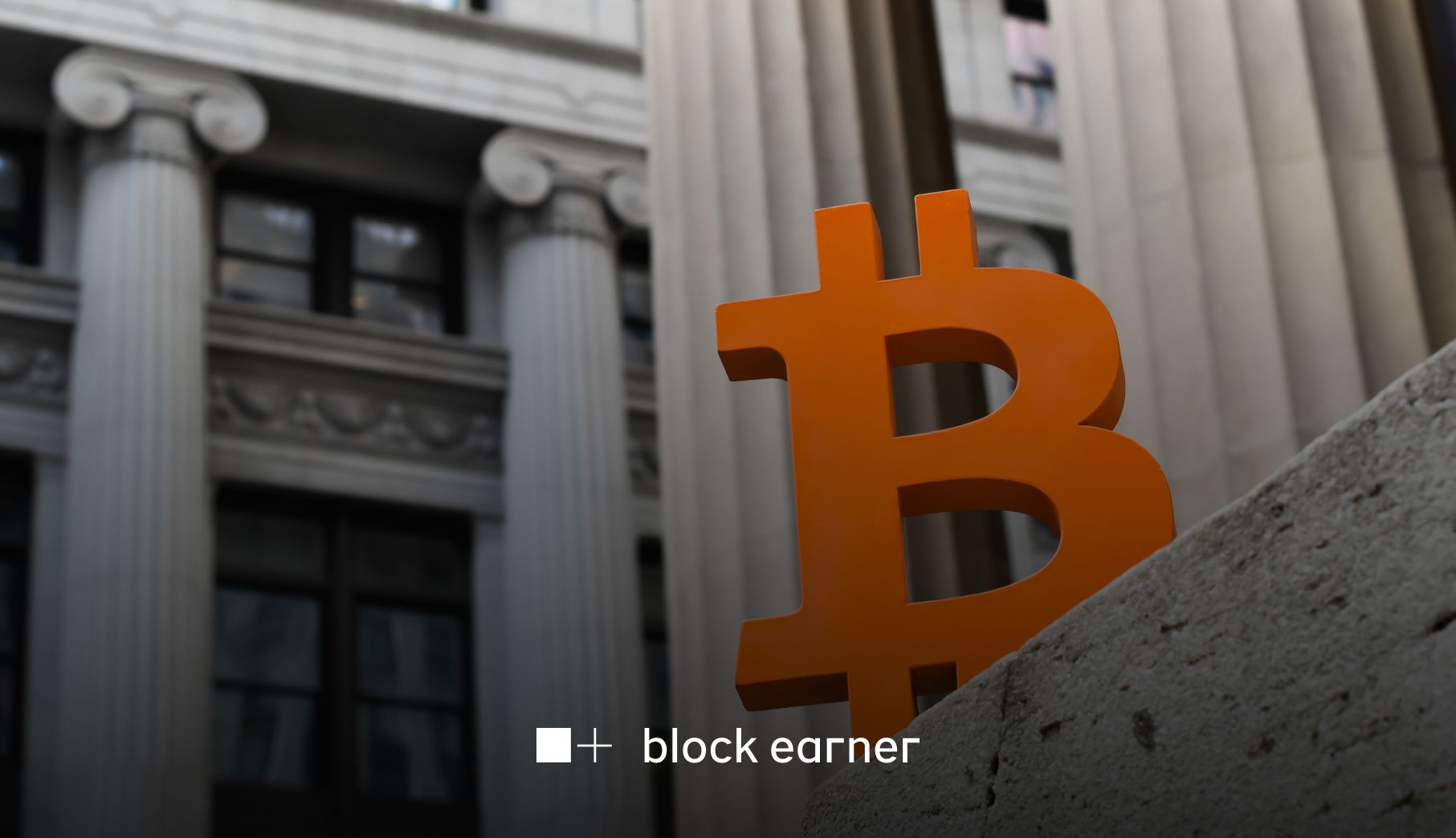How Block Earner Protects Your Account
-
Two-Factor Authentication (2FA): Every account requires 2FA — via SMS when trading, and an authenticator app when withdrawing crypto — adding an extra layer of protection beyond your password.
-
Facial Verification on Withdrawals: Before any crypto leaves your account, we confirm it’s really you with a secure facial verification step.
-
Advanced Monitoring: We actively monitor for unusual activity, block suspicious behaviour, and comply with strict AML/CTF regulatory requirements.
-
Local Support: Our expert team is based in Australia and available through our official Contact Us channel whenever you need assistance.
Staying Safe from Scams
Common Cryptocurrency Scams and How They Work
Investment Scams
-
Unsolicited contact from an unknown “broker” offering guaranteed high returns.
-
Pressure to transfer crypto or make an AUD payment to a new platform or to invest more to unlock your returns.
-
A trading app that isn’t available in official app stores.
-
Promises of tax‑free profits or requests to pay additional fees before withdrawing funds. Saying you need to pay tax or insurance to unlock your investments.
-
Check credentials: Confirm the broker/platform is licensed on ASIC’s Professional Registers.
-
Use trusted apps: Only download from official app stores or direct exchange websites.
-
Ignore pressure: Urgency and “act now” tactics are a red flag.
-
Don’t pay extra: Real platforms don’t charge extra taxes or fees to release funds.
-
Verify independently: Search reviews and reports on Scamwatch before investing.
-
Contact directly: Use official contact details, not those given by a cold caller or email.
-
Trust your gut: If returns sound guaranteed or too good to be true, walk away.
Remote Access Scams
-
Unsolicited calls claiming your computer has problems.
-
Requests to download remote access software (TeamViewer, AnyDesk) or to provide personal information.
-
Pressure to log in to your crypto exchange while they are connected.
-
Never give remote access to your computer.
-
Do not share passwords or financial details over the phone unless.
-
Keep antivirus and firewall software up to date.
Recovery or “Reclaim” Scams
-
Promises to recover lost funds.
-
Requests for upfront payment (“recovery fee”) or additional fees to cover taxes.
-
Generic documents or letters that look like templates; lack of official registration in Australia.
-
Email url is incorrect. Eg: instead of showing support@blockearner.com.au, the email may say support@xblockearner.com.au or support@1blockearner.com.au for example.
-
No fees, no recovery: Legitimate firms won’t ask for upfront “recovery” payments.
-
Check registration: Verify law firms or agents on Australian registers — scammers often aren’t listed.
-
Scrutinise documents: Watch for generic templates or poorly formatted letters.
-
Check email domains: Ensure addresses match the official website
-
Don’t engage twice: If you’ve already lost funds, don’t send more — it’s almost always a second scam.
Job Scams
-
A “recruiter” contacts you unexpectedly via text or encrypted messaging apps.
-
The job offers unusually high pay with little work, or asks you to buy equipment or pay a training fee.
-
The recruiter asks for personal documents (passport, driver’s licence) before verifying the employer.
-
The job involves sending or receiving crypto or money on behalf of “clients” or setting up bank/crypto accounts—this could be money‑laundering.
-
Verify employers: Cross-check the company on LinkedIn, or official job boards before sharing details.
-
Never pay upfront: Real jobs don’t require crypto, equipment fees, or training costs to start.
-
Protect your ID: Don’t send passports, licences, or bank details unless you’ve confirmed the employer’s legitimacy.
-
Avoid “money mule” tasks: Reject offers involving receiving/sending money or crypto for others — this could be money-laundering.
-
Stick to official channels: Apply through recognised job sites or company career pages, not random links sent via text or messaging apps.
Social Media Scams (Facebook and Instagram etc.)
-
Verify the account: official pages for exchanges have a blue verification badge. Be wary of pages without it or newly created profiles with few followers.
-
Don’t click on links sent via direct message. Instead, visit the exchange’s official website directly.
-
Ignore unsolicited investment offers or requests to send cryptocurrency to an external wallet. Genuine exchanges will not ask you to log in through a link sent via social media.
Due Diligence and Practical Safety Tips
-
Question high returns: Be sceptical of promises of guaranteed or above‑market returns. Crypto markets are volatile and legitimate projects will not promise guaranteed profits.
-
Protect your accounts: Enable two‑factor authentication; use strong, unique passwords; never share private keys or seed phrases with anyone.
-
Be cautious of payment methods: Legitimate employers and service providers rarely request payment via cryptocurrency. Do not pay fees to “unlock” earnings or recover lost funds.
-
Limit information: Never share copies of your identity documents unless you are certain of the recipient’s legitimacy.
-
Family and advisor communication: Discuss potential investments or requests for money with trusted family members or professional advisors; scammers often insist on secrecy.
-
Query unsolicited communication: If someone or a company has communicated with you out of the blue, be suspicious. Check that their email url is live & correct. Reach out directly to the companies’ Scam or Customer Service team to make sure the correspondence is legit.
What to Do If You Think You’ve Been Scammed
-
Stop all communication with the scammer. Do not send more money or provide additional information.
-
Contact your exchange or bank immediately to report the scam. Exchanges can sometimes freeze wallets associated with scams, and banks may prevent further transfers.
-
Change passwords and enable two‑factor authentication on all accounts.
-
Report the scam to Scamwatch via the National Anti‑Scam Centre. Reports help authorities to disrupt scam networks and warn others.
-
Seek support. Being scammed can be emotionally distressing. Organisations like IDCARE, Lifeline (13 11 14) or Beyond Blue (1300 22 4636) offer free help.
Final Thoughts


